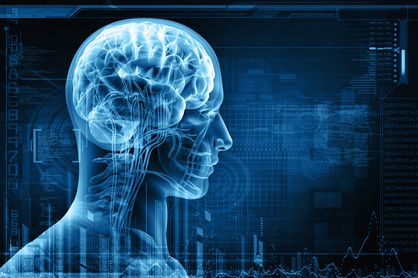
(Vienna, 22 August 2018) A global study conducted by the international "Brainstorm Consortium" has, for the first time, analysed the genome of 1.1 million patients with psychiatric and neurological disorders and has shown that certain brain disorders are genetically related. For example, there is a significant correlation between psychiatric disorders such as anxiety and depression. The Austrian child and adolescent psychiatrist Andreas Karwautz from MedUni Vienna's Department of Child and Adolescent Psychiatry was involved in the study, which was recently published in the leading journal "Science".
Hitherto, psychiatric disorders such as anorexia, depression and schizophrenia, for example, have predominantly been diagnosed phenotypically, based on the presenting symptoms. However, in most cases this gave rise to a certain lack of clarity, since many classification models fail to provide an adequate description of the particular disorders. Andreas Karwautz, child and adolescent psychiatrist at MedUni Vienna's Department of Child and Adolescent Psychiatry and co-author of the study says: "There is no such thing as 'simple' depression or 'simple' anorexia that does not exhibit symptoms of other mental disorders. A diagnosis is always heterogeneous."
The large-scale, international study conducted by the Brainstorm Consortium, which comprises several working groups from Harvard University and Massachusetts Institute of Technology, has now analysed genomic data from around 265,000 psychiatric and neurological patients, as well as 785,000 healthy people. The study investigated whether there is a correlation between disorders with certain genetic features. For the purposes of the recent study, the common hereditary factors of fifteen neurological diseases and ten psychiatric diseases were analysed. MedUni Vienna provided data from patients from the Department of Child and Adolescent Psychiatry, who were suffering from eating disorders.
The study authors looked at three key aspects: psychiatric and neurological disorders were each considered as an individual group and then in comparison to each other. The main findings are as follows: some psychiatric disorders have significant genetic commonalities, which increase the risk of patients who develop one disorder also developing the correlated disorder. This is the case for schizophrenia, depressive episodes, bipolar disorder, anxiety disorder and ADHD but not for Tourette's or autism, which hardly exhibit any genetic correlations. On the other hand, depression and anxiety disorder are closely related genetically, even if their symptoms are very different. The same applies to anorexia and obsessive-compulsive disorder, as well as to schizophrenia and bipolar disorder.
The findings on the second aspect indicate that, according to the study, there is generally a greater genetic difference between neurological diseases within their own group. The third main aspect of the analysis showed that they also differ genetically from the various psychiatric disorders, with the exception of migraine. This was found to have correlations with ADHD, Tourette syndrome and depressive episodes. The study therefore showed that there are overlaps when it comes to specific genetic predispositions, thereby casting doubt upon traditional diagnostic classifications. From the material, it is also possible to see that genetically correlated diseases, such as psychoses, for example, have similar symptoms, which occur in both schizophrenia and Alzheimer's disease.
Karwautz explains: "This genome analysis , which for the first time involved statistically significant case numbers, forms a good basis for improving the psychiatric classification models with the aid of well-founded neurobiological diagnostics. As a researcher, I am delighted that my work at MedUni Vienna has enabled me to contribute to this global endeavour."
Service: Science
Verneri Anttila, Andreas Karwautz, Benjamin M. Neale et al. The Brainstorm Consortium. Analysis of shared heritability in common disorders of the brain. Science. DOI: 10.1126/science.aap8757